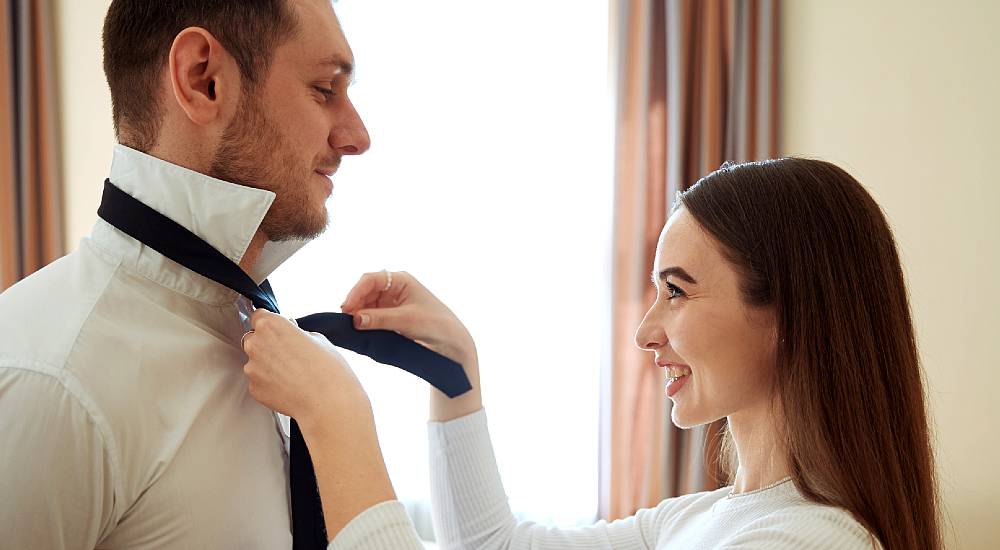Modern life can sometimes feel as if we’re constantly struggling to get through a day. Work, studies, relationships, dating, love, and the figurative baggage we carry are bewildering. If you feel emotionally damaged by life events, then we’re here to explain what that really means, what you need to do to help get closure, and finally how friendship and love can help us get there.
And it might surprise you to see who you need to befriend and fall in love with to truly heal! Let’s start at the beginning with a definition.
What is emotional damage?
In short, it’s damage to your psyche that happens because you’ve come through a traumatic experience. There’s a broad spectrum of events that could damage-related trauma damage. Examples of such events could be the death of somebody close to you, an abusive relationship, the end of a relationship, being the victim of a crime, and many more.
Not only that, there can be emotional damage from long-term stress too. The effects on people experiencing these emotionally damaging periods and events are as wide-ranging as the experiences.
It’s also important to remember that emotional damage doesn’t just fade with time. People who were emotionally damaged as children often face challenges from living through those events. And just because someone might not have been physically harmed doesn’t mean they won’t experience trauma.
It’s subjective. One person’s uncomfortable day is another’s traumatic experience. The more helpless, powerless, and humiliating the incident, the more likely you’ll experience some emotional damage.
Symptoms of emotional damage
Given that there is such a wide range of causes, as you’d expect, there is a wide range of symptoms. Emotional damage usually causes changes in the way we cope with everyday life. Some signs of emotional damage are
- inability to function at work
- problems dealing with home life
- having difficulty forming healthy relationships
- feeling disconnected from your home, family, and friends
- feeling angry, anxious, afraid, and depressed
- intrusive thoughts, flashbacks, and nightmares of the event
- avoiding people, places, or anything that is a reminder of the emotionally damaging event
- using alcohol, drugs, or a combination of the two to feel better.
People experience these symptoms at different intensities and for different periods. Most people experience some symptoms after an emotionally damaging event. If the symptoms interfere with daily life for a long time, it’s time to seek professional help to help get back on track.
How to cure emotional damage
Curing your emotional damage isn’t a walk in the park, but the good news is that it is possible. For many people, following these steps may be enough. For others, even after trying everything on this list, they may still feel at sea. Involving a therapist is not something to feel guilty about if you need help resolving a problem.
1. Watch your health
It might seem trite to say that looking after yourself is important in working through your emotional damage, but it’s true. Eating healthy food, getting regular exercise, and getting a healthy amount of sleep are key steps to improving your physical and mental health.
2. Unwind
Then finding healthy ways to deal with difficult emotions is necessary. Spending time in nature, listening to music, yoga, meditation, and all good ways to calm yourself and care for your mind.
3. Avoid stress
It might seem obvious, especially as we’ve just mentioned unwinding. It’s worth saying that taking some from a busy or stressful job and staying away from people with a fondness for drama is essential to your peace of mind.
4. Avoid alcohol and drugs
Alcohol and drugs may make you feel worse at this time because they heighten the mood you’re already in. That’s bad news for people suffering from depression and anxiety.
5. Don’t rush things
Healing from emotional wounds is a lengthy and difficult process. There’ll be days when everything comes together and days when you fall apart. In some cases, it may take years to work through the trauma. The healing process takes its own sweet time.
6. Have a support network
Your support network consists of people who can help you through this tough time. It may contain a doctor, mental health professional, and people close to you. The important thing is to surround yourself with people who can be patient and kind while you work through what’s happened.
On the subject of support networks, your friends and loved ones are key in helping you cure emotional damage.
How friendship helps the emotionally damaged
We’ve mentioned that a support network is vital to curing your emotional damage. A key element of this cure is friendship.
Since a symptom of emotional damage is isolating yourself from friends, it might be that you have to rebuild your social relationships. It can be tough and requires honesty on your part.
Take the step to contact friends and tell them what you feel comfortable sharing. It might be that you simply tell them that you’re working through some issues. Here’s how friendship can be part of your cure.
1. They provide distractions
If you’re feeling sad or anxious, chatting to a friend can cause you to focus on something else for a while, making it easier to take you out of the spiral of emotions.
2. They can motivate you
If you’re not in the mood to hit the gym or go for a run, a buddy is an excellent motivator. You are more likely to drag yourself out of bed or off the sofa if you know someone who cares about you is waiting for you.
3. They’re great sounding boards
Out of self-care ideas? Ask a friend. Need a new healthy recipe? Whether you need suggestions or just want to vent about how you’re struggling with the difficult process of healing, a true friend will listen, and provide support or options as required.
4. They help hold you accountable
Good friends can help you take responsibility for your healing process. They can help you hold yourself accountable for the steps you need to take to heal.
5. They’re a judgment-free zone
True friends listen without judgment. They provide a shoulder when you need it, but you won’t feel as if you’re in a courtroom.
It’s equally important to understand that your emotional distress and the healing process you’re going through aren’t your friend’s responsibility. There’s a boundary between the support your friend provides and the support your mental health professional provides. In short, friends aren’t therapists.
How love helps to cure damaging emotions
Last but certainly not least, love can be a game changer. It takes many forms — there’s family love, the love you feel for your friends, and then there’s romantic love.
Whether you’re already in a romantic relationship as you go through the healing process, or thinking of getting into one, love is a heady emotion.
In addition to all the ways that a friend could help your healing process, your romantic partner brings support to the table in their own special way. Here’s how love can help you heal.
1. It builds trust.
If you’re entering a relationship during your healing process, it’s important to take it slowly. Remember you’re going through a difficult process. Build trust, which is the foundation of a healthy relationship. If you can form a relationship with trust, you’re on the right path to a healthy relationship.
2. It brings joy
Being with someone you love can make you feel more cheerful, can spark more intention, can motivate you. On bad days, the one you love can help you smile, and on good days you can laugh together.
3. It brings physical and emotional intimacy
There’s comfort and joy to be had from sharing physical space with someone. Not only that, the emotional connection between you and your love means you aren’t lonely. In a healthy relationship, those sensations of closeness are great for bringing you out of yourself.
Hugs, holding hands and cuddling all provide healing comfort, and support.
4. It’s understanding
In a healthy relationship, your partner gets your struggles. They won’t minimize your difficulties or sweep them under the rug. It comes down to providing you with care when you need it.
5. It shows kindness in little things
When you’re trying to heal, it can feel as if you’re alone in your struggle. The little things that the people we love do for us can make us feel connected, less lonely, or less isolated. It isn’t something that’s easy to quantify, but it lifts the spirit.
Friendship and love, you must accept yourself
As amazing as it is to have people in our lives who love and care for us, there’s a relationship that you’ll have to be working on all the time to ensure that your future relationships are healthy.
In simple terms, you need to be your own bestie. You need to become your own best friend. You need to accept yourself as you are.
Accepting yourself, including your flaws and the emotional damage you’re trying to heal from is part of the journey and a first major step in the healing process.
Wrapping Up…
In conclusion, if you feel like you have emotional damage, you’re not alone. But you can heal from it — it doesn’t mean you have to live with it. And the first steps toward healing are friendship and love.
Having people around you who are supportive and have your best interests at heart is a surefire way of getting through the emotional damage you’ve experienced. So go ahead and let someone else in. They might surprise you.
Daring writers who explore topics related to dating, love, and relationships. Submit your article here









